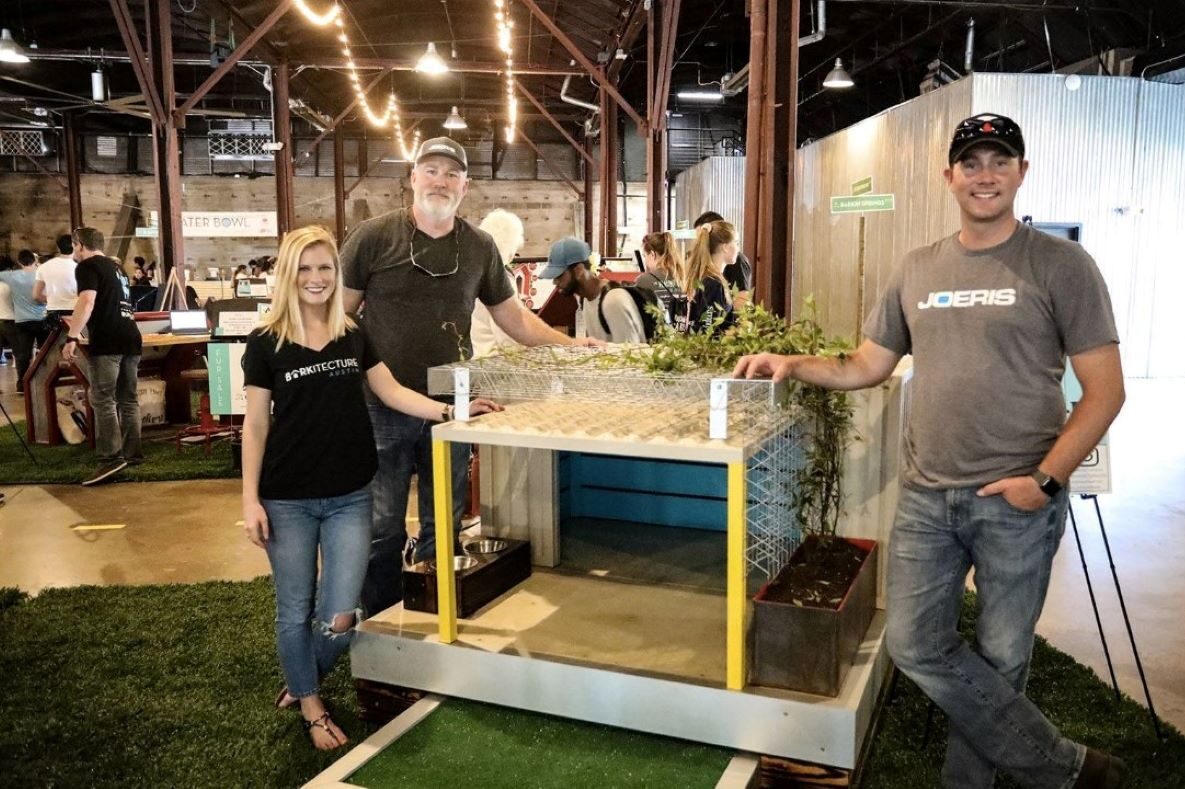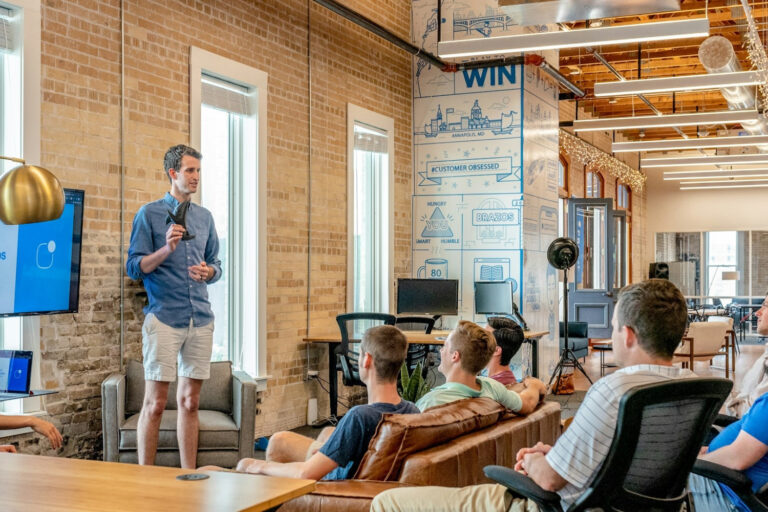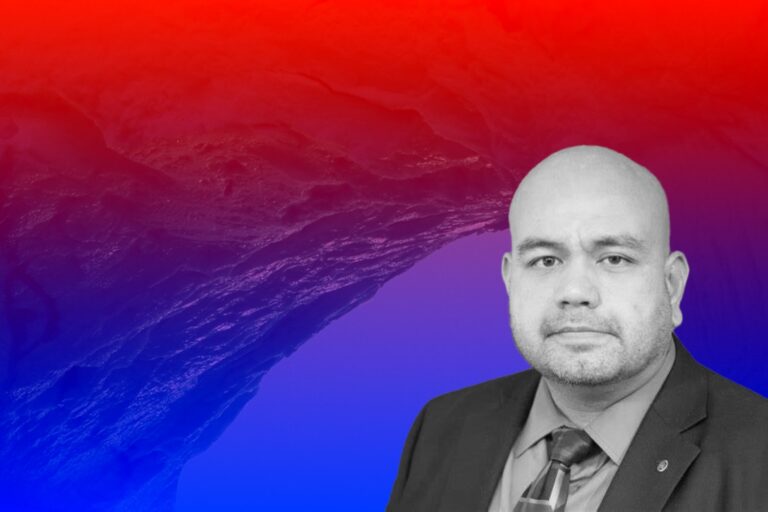Joeris General Contractors: A $600M Name Built on Trust & Good People
Founded in 1967 by Leo Joeris and led today by Gary Joeris, Joeris General Contractors Ltd. has been a mainstay in commercial real estate development since then. And 2020 continued that legacy as the company completed nearly $336 million in projects across San Antonio and the surrounding counties and more than $600 million across Texas.
That work was diversified among several sectors, including office, industrial, education, government, retail, healthcare, and science. Let’s read on to uncover interesting stories of this San Antonio-based contractor.
The Beginning of Joeris
Joeris got his foot in the construction door when he went to work for his brother Joe after the war. After getting some valuable experience he became an acoustical ceiling contractor before going back into the general construction side of working for William Matera Construction. Leo and Raymond Klaus along with a handful of people worked for William Matera Construction until Matera was killed in a plane crash. “After his death, Dad finished up all their work and started bidding work as Joeris & Klaus Construction Company,” says Gary Joeris, CEO of Joeris General Contractors. “My dad and Raymond Klaus started the company in 1967 focusing on some private work, but mostly school work, churches and public work.”
Working through the summers during high school and college, Gary Joeris worked for the company as a carpenter, helping out in the office, running errands and estimating. He joined the company fulltime in 1978 after graduating college as a project manager. By the early ‘80s, when Klaus decided to go out on their own, Joeris continued on as Joeris General Contractors and was named vice president of the company. He would continue in that capacity until 1990 when he took on the role as president. His father continued to support and guide him until he retired in 2000. “Dad was pretty good about relinquishing control and, of course, I went to him for advice. We were a good team. He was always open to my opinions and suggestions and I certainly listened to his opinions and suggestions.”
The biggest changes for the company came 21 years ago, when Joeris started the strategic planning process for the company. “My aspirations were to grow the company. You have to keep it growing in some form or fashion to be relevant in this market. We started this strategic planning process and identified goals for the next two to three years. We set goals for getting better; goals for the kind of manpower we would need, what positions we would need people in, and we worked very deliberately in making those goals happen.
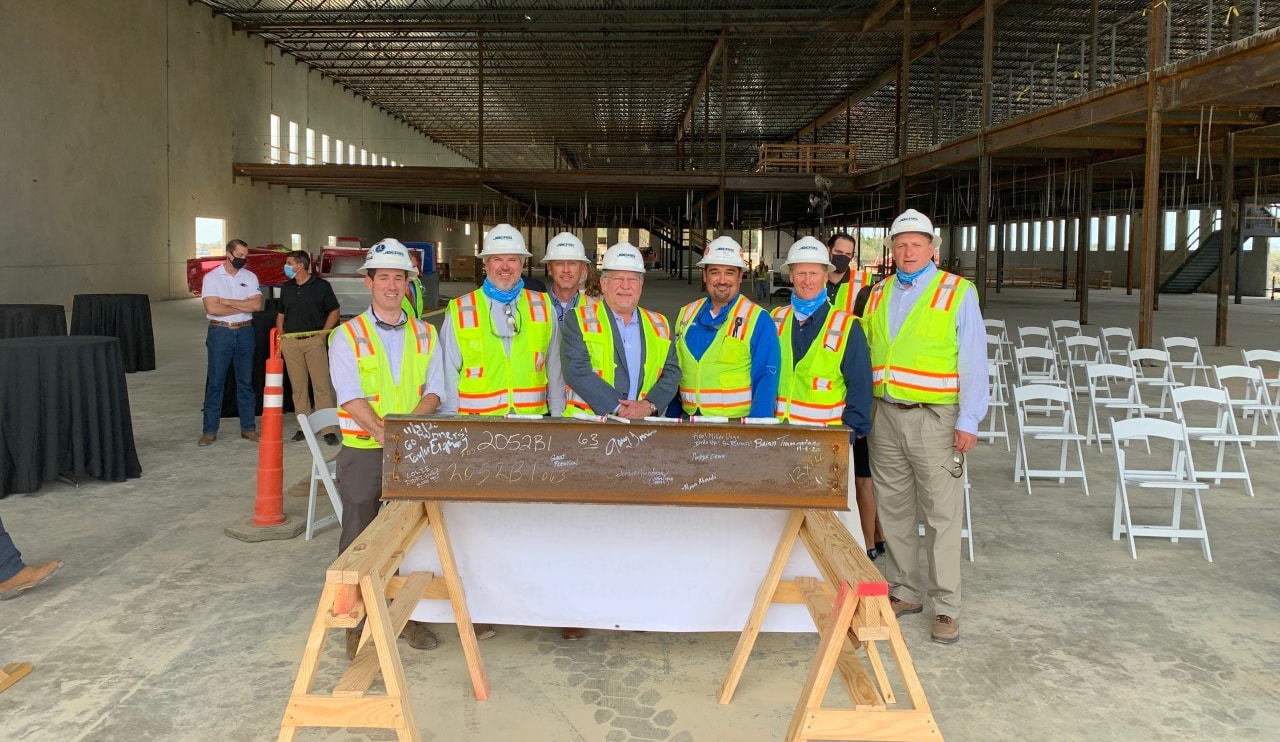
“I could not have achieved any success without our people. They are the key ingredients. My best blessing was having some really good people to start with from my dad, and we continue to bring in high quality, high caliber folks with good character.”
The Winning Strategy: Build Trust and Good People
Joeris General Contractors is known for building structures of all types – schools, hospitals, retail centers, offices and places of worship. But they build more than buildings. They build trust.
“A key part of our mission is to build trust with our clients, subcontractors and the communities where we work, but most importantly with our employees,” CEO Gary Joeris said. “By providing our staff with a friendly workplace, an open-door environment and challenging work, our employees feel empowered to make decisions, engage in continuous learning and contribute to a purpose beyond just their job. So we are building structures, while we build trust and build careers.”
Northside Independent School District in San Antonio, Texas has been a repeat client, hiring Joeris to build new schools and renovate older ones. John Folks, retired Superintendent of NISD, talks about working with Joeris:
“Joeris did so much, both in the new school construction and the renovation area, and actually took on some of the toughest projects, I would say, that we had, especially on the renovation part. We had many projects that they did a wonderful job with.”
Folks said that he appreciated the way that Joeris would always talk with them and share their recommendations, based on their perspective as contractors and their great experience as to how to build the best school or how to best complete a renovation. “That’s honesty, that’s integrity, and that’s why I always – anytime Joeris was on a project – my trust in them was great.” Folks emphasized.
The over 400 employees who work for Joeris, a family-oriented construction services company that has been part of San Antonio since 1967, know they work for one of the best. The Joeris story has been celebrated repeatedly, and the company has been named one of San Antonio’s Best Places to Work 10 times. “It is truly one of the recognitions our company is most proud of,” said Joeris, son of the firm’s founder, Leo Joeris.
Joeris, calls his company’s employees “the lifeblood of the company.”
“They have been the catalyst for our success and growth over the years,” said Joeris. “They are certainly our most important asset, and, truthfully, they are simply part of the family and critical to our continued success.”
Joeris carefully chooses its employees. Experience sought varies by position, but work experience in general is important, as well as experience in commercial construction. Traits that Joeris seeks include integrity, good work ethic, humility, ambition, perseverance, ability to solve problems and innovative thinking.
“Joeris employees are the best that our industry has to offer. Not only are they smart, energetic, highly skilled, and hard-working, they are just good people,” Joeris said. “They want to do the right thing – for our clients, our subcontractors, our company and for each other.”
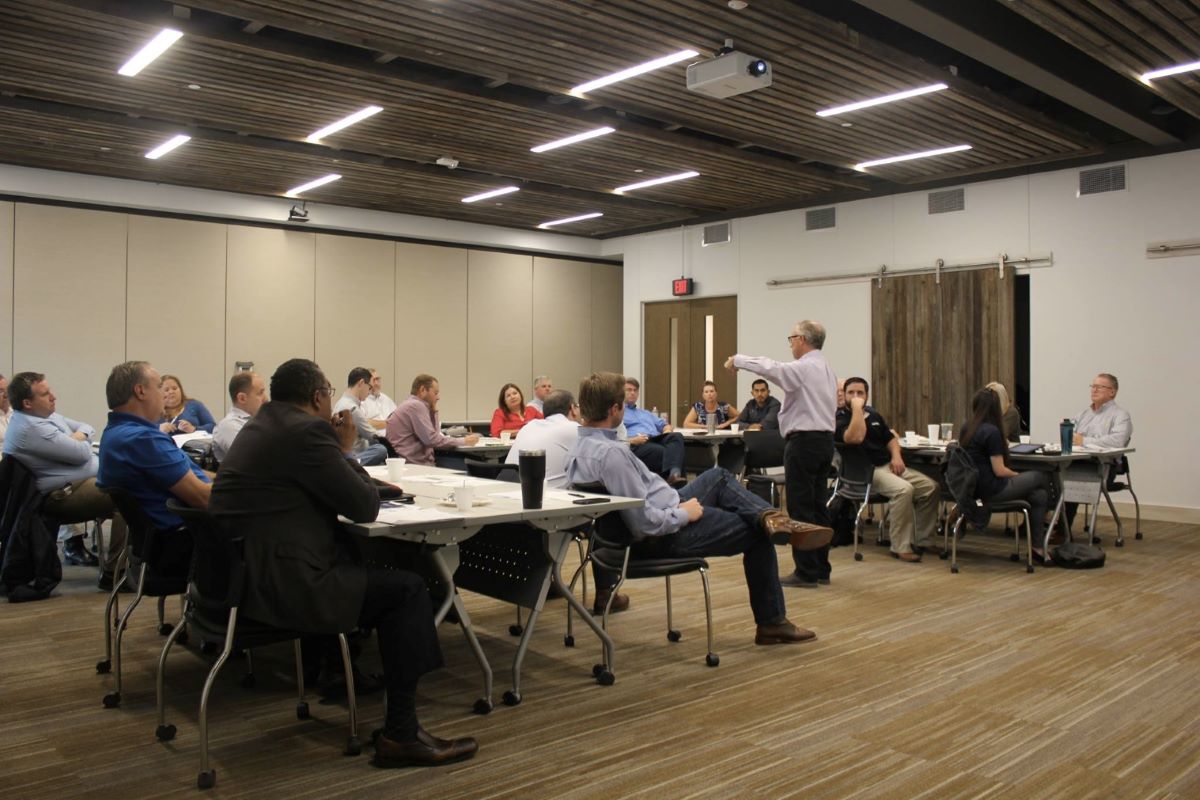
Lindy Mechler, director of field operations, has been a Joeris employee for 46 year . “Joeris employees are given the freedom of thought, ownership in doing work, ability to solve problems on their own, recognition for their work and support from all levels of leaders in the organization,” Mechler said.
Joeris’ pay ranges vary per position. Employees are also offered a comprehensive list of benefits. “Employees are given opportunities to excel and grow. They are not pigeon-holed. They are not just a number,” Joeris said. “Our hourly employees enjoy many benefits that our competitors do not, allowing us to keep experienced and knowledgeable skilled craftsmen.”
The company also makes sure its employees have the best opportunity to level up their career. “Growth at Joeris is only limited by an individual’s desire and willingness to learn and work hard,” Joeris says.
While most companies have mission statements, policy manuals and procedures, Joeris also offers a “Joeris Way to Go Program,” in which people like Jared Swinney, project engineer, and Kayla Choate, technical writer, are recognized for exemplifying “The Joeris Way.”
“It isn’t a list of work rules or even a code of conduct. It’s what’s inside each and every one of our employees. It’s their work ethic, compassion and personal belief that doing the right thing is the minimum standard. ‘The Joeris Way to Go’ program is a means to honor our employees that exemplify this attitude.” comments the founder.
Jordan Verstuyft started working for Joeris in 2012 as a carpenter helper. On his first day on the job, he was dragging a 40-foot rebar across the parking lot. The next day the superintendent was teaching him to shoot grades and read plans. Today, he is an assistant superintendent.
“I’ve learned so much here,” Verstuyft said, adding that company leaders have an open-door policy and are willing to take the time to talk with employees. As a workplace, it’s not just about building relationships with clients but with each other, he said. “I can’t tell you what I will be building in 10 years, but I can tell you that my hard hat and vest will have the Joeris logo on them.”
That’s the feeling among Joeris’ people that helped it become ranked No. 1 among extra-large employers in the San Antonio Business Journal’s list of Best Places to Work.
Joeris’s Takes on Promoting Innovation
Ingenuity Team & Tech Hub
The construction industry has long been criticized for its failure to adopt modern technology, but Joeris is trying are to change that. The company’s Ingenuity Team, formed three years ago, is comprised of employees in a variety of roles including carpenters, superintendents, project managers, executives, marketing, and accounting personnel. Their job is to identify areas for innovation, test products and concepts and conduct research and development to determine if those technologies can be deployed company wide. But more than that, their efforts are designed to create a culture of innovation.
“We promote making mistakes. We promote failing,” says Gajbhiye. “The idea is to fail small and fail fast. When you succeed, then you can scale.” Leaders also need to be “failure tolerant.”
“Leaders need to coach their teams and tell their teams it is okay to fail,” says Gajbhiye. “Let them try something new.” He says they are not looking at technology for the sake of technology, but asking the question of what value it brings to construction.
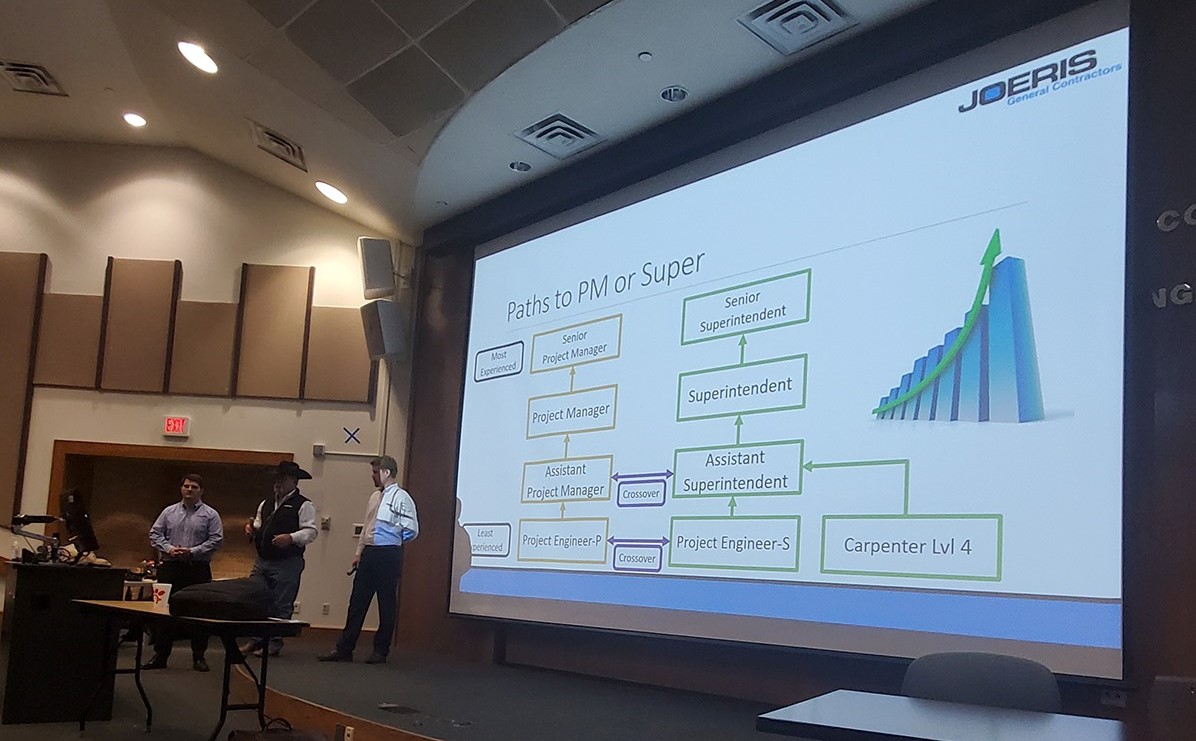
The Ingenuity Team has implemented more than 17 different technologies over the past few years including BIM, Augmented Reality, Virtual Design & Construction (VDC), drones, Assemble TakeOff, PlanGrid, Lean Construction – Last Planner System. The team will first develop a consensus for a new process or technology, then it will work on developing a business case and lastly it will provide a recommendation whether to move forward. The key objective is to add value for clients. The team also looks at each project to determine which technologies are best suited.
“Many test projects have become part of our system,” says Gajbhiye. “We are currently using VDC and Assemble as a tool to do preconstruction quantity takeoff using BIM models, and tying schedules to the models.” The company has more than 30 registered drone pilots and 10 drones, which they are using to monitor progress on jobsites and for surveying.
The company is currently testing the use of a tech hub on the jobsite. The big metal box on wheels provides easy access to technology for all of the trades and project teams to use. It includes a 55-inch screen TV that can be connected to an iPad for easy viewing of plan documents, BIM models, safety training, or other software. The goal is for project superintendents to do a daily huddle with all of their crews. According to Gajbhiye, commercial versions of the Tech hub were too expensive to be feasible across all jobs, so the Joeris Ingenuity team created their own version.
“We like the fact that trades will no longer have any excuse that they never received update plans,” says Gajbhiye. The tech hub ensures latest plans are available to everyone on the jobsite, where and when they need them. After testing in Austin and San Antonio, the feedback has been positive.
Tech Adoption Strategy
As more construction business owners consider transforming their technology, he believes the first and most important piece is to have a technology adoption strategy. Many companies are so focused on completing their projects with existing expertise and moving on to more projects that they do not consider how they might be able to improve their processes. “Technology is increasingly becoming the driver for competitive advantages, so it’s important to dedicate time to developing a solid adoption strategy. I would also encourage construction business owners to think about their company cultures when developing their technology strategies.” says Gajbhiye
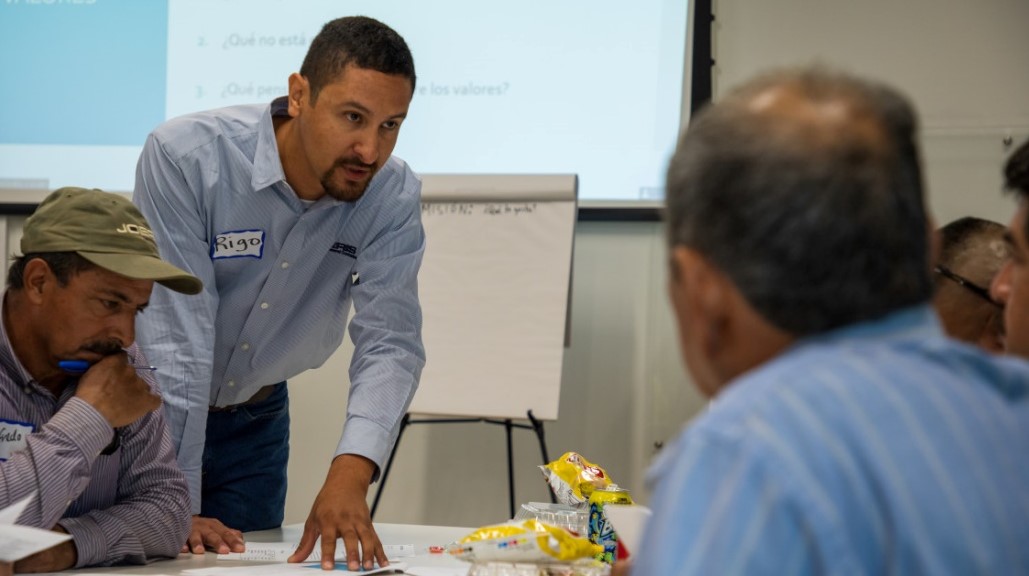
“You might have a progressive and nimble company culture where employees are regularly open to trying new, cutting-edge tools, and where you can pilot many different options to see what sticks. Or, perhaps you have a more conservative company culture that shows more resistance to new technologies. If that’s the case, you probably can’t pilot multiple tools without creating frustrations across your teams.” – he adds. Understanding what approaches will gel with your company culture and tailoring your strategies around that understanding will help you implement technologies more successfully across your organizations.
When determining value the company looks at both the tangible and intangible benefits of a given process improvement or technology. Tangible benefits would include things that could be easily measured like cost or time savings. Intangible benefits such as improved collaboration, or improved design are more challenging to measure. As the company moves forward, it is working on more ways to track return on investment.
Powered by a purpose of creating value for clients, Gajbhiye believes Joeris is on its way to develop a culture of innovation. “I see a lot of excitement around people when we discuss new ideas,” he says. The idea of encouraging innovation and failing small is new to the construction industry, but Joeris General Contractors is proving it can work, one project at a time.
The Bottom Line
CEO Gary Joeris attributes the company’s success to having “good, strong people with a really good work ethic.” The company constantly invests in employee training and development at work. Joeris also provides its members with extra perks like gym membership or expert consultations to make sure its people are the most competitive in the industry.
Since 2009, Joeris has consistently ranked on the ENR 400 list, rising from spot 243 in 2009 to 159 only a decade after that. “We have really focused a lot on culture here,” Joeris said, “and educating our people to deliver a consistent product and deliver a construction service the way we want our construction service to be delivered.” Through all the benefits and engagement programs at Jeoris, employees are motivated to do well. Productive employees mean higher profits and more opportunities to build trust and meet new clients within their Texas communities.

